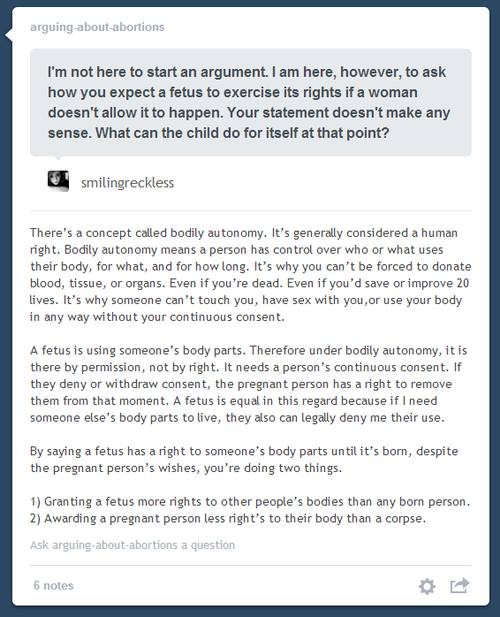The National Review‘s Kevin Williamson recently wrote that he believes women who have abortions should be executed. He specifically mentioned hanging as the means of execution. I’m not going to get into Williamson’s rhetoric, nor am I going to link to his post (you can look it up.) I’m more interested in how he responded to a few real-life examples of how his idea might play out, as described by RH Reality Check‘s Jodi Jacobson:
In an ongoing Twitter exchange, I asked Williamson if he knew women who had had abortions. He said yes. I asked him if he had told them he thought they should be hanged. No answer. I asked again. No answer. I asked if he would tell the women in his circle who’ve had abortions that he believes they committed homicide. No answer. I asked Williamson if, being consistent and applying the laws he supports to his own family, he would allow his wife to die in a circumstance in which her life were imminently threatened by a pregnancy rather than break his no exceptions rule. He would not answer. I asked if his wife opted for an abortion in a given circumstance, including to save her own life, would he report her to the authorities. Again, no answer. The only reply I got was him calling my line of questioning an “elementary-school trolley problem gambit.”
“Go look it up if you don’t understand,” he added.
In short, he gave no answer when asked to apply his legal proposal to his own family. He refused to take responsibility for the laws and policies he espouses.
Of course, I don’t believe for a second that Williamson thinks anyone he personally knows would ever be subject to his suggested punishment. Either he hasn’t thought it through that far—and refuses to do so now—or he expects anyone in his circle to be above that sort of thing.
What is interesting to me are the ways Williamson, and others like him, choose to deflect the difficult questions. A common tactic I have seen is to dismiss uncomfortable questions by simply calling them “ignorant,” or some similar adjective, and then refusing to discuss the matter further. Here, Williamson cites the “trolley problem,” with liberal helpings of condescension, to dismiss Jacobson. In case you’re unfamiliar with the trolley problem, here’s a version of it: Continue reading →



![By User Magnus Manske on en.wikipedia [Public domain], via Wikimedia Commons By User Magnus Manske on en.wikipedia [Public domain], via Wikimedia Commons](http://crypticphilosopher.com/wp-content/uploads/2014/05/Gray9.png)
![Thomas Gainsborough [Public domain], via Wikimedia Commons](http://crypticphilosopher.com/wp-content/uploads/2014/05/SirWilliamBlackstone.jpg)